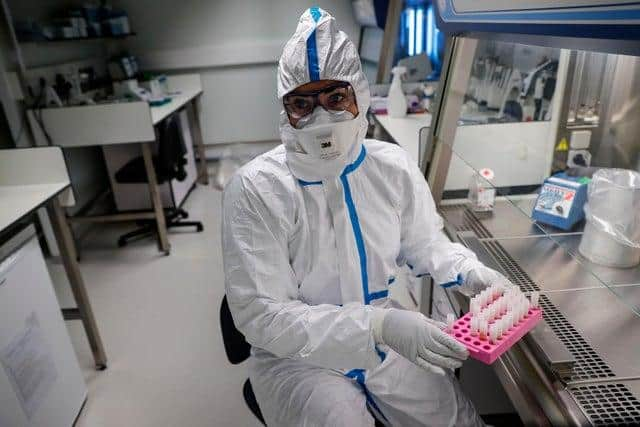These are the Sheffield neighbourhoods with the oldest populations, most at risk from coronavirus
and live on Freeview channel 276
They were advised early on to be particularly stringent in following social distancing guidelines by staying at least two metres from people at all times and only leaving home to buy food, collect medicine or exercise – restrictions which were subsequently imposed on us all.
Coronavirus in Sheffield LIVE: Death toll rises to 47 | 833 cases now confirmed in city | Police respond to photos of groups flouting rules
The Office for National Statistics has highlighted the neighbourhoods across the UK with the highest proportion of people aged over 70, who could be at increased risk from COVID-19.


In Sheffield, these include:
STANNINGTON: 30.1 per cent (457 people) aged 70 or above
Advertisement
Hide AdAdvertisement
Hide AdHACKENTHORPE (Moorthorpe Way area): 29.4 per cent (420 people)
WATERTHORPE (Ochre Dike Lane area): 29.0 per cent (395 people)
BURNCROSS (Windmill Hill Lane area): 28.5 per cent (369 people)
NORTON (Norton Park View/Norton Park Crescent area): 26.7 per cent (414 people)
Advertisement
Hide AdAdvertisement
Hide AdWATERTHORPE (Eckington Way area): 26.5 per cent (321 people)
PARKHEAD: 26.3 per cent (444 people)
BRADWAY: 26.2 per cent (402 people)
CHAPELTOWN (Cowley View Road/Woodburn Drive area): 25.9 per cent (390 people)
HALFWAY: 25.5 per cent (352 people)
GRENOSIDE (Wheel Lane area): 25.3 per cent (358 people)
It should be noted that people who are over 70, pregnant or have an underlying condition, including asthma or diabetes, are not necessarily among the 1.5 million people the Government has written to advising them to take even greater precautions, known as ‘shielding’.
These people, who are at the greatest risk of becoming seriously ill from coronavirus, include but are not limited to anyone who has had an organ transplant, is having certain types of cancer treatment or has a severe lung condition such as cystic fibrosis or severe asthma.
Advertisement
Hide AdAdvertisement
Hide AdThey have been told to take extra steps, which include staying home at all times – not even going out to buy food, collect medicine or exercise – and keeping at least two metres away from other people in their home as much as possible.